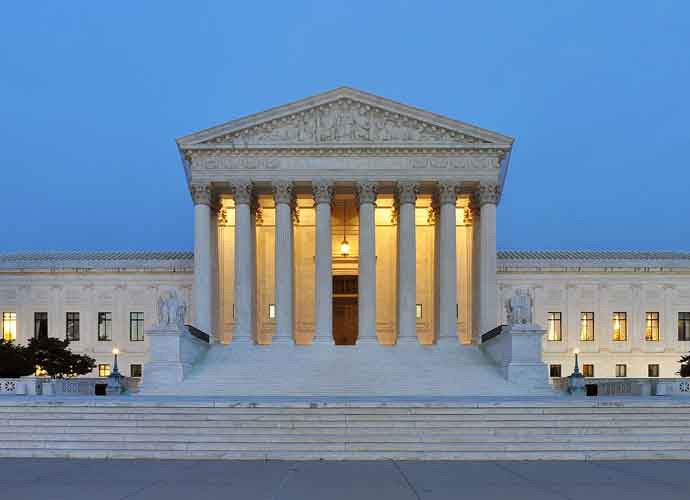Biden Orders Study On Adding Seats & Term Limits To Supreme Court
President Joe Biden has ordered a 180-day study on the expansion of the U.S. Supreme Court, fulfilling one of his campaign promises to initiate a bipartisan commission to examine the possibility of adding seats to the court and potentially setting term limits for justices.
Former President Donald Trump appointed three justices to the court during his time in office – a move that prompted activists to push for more seats, as the court now has strong conservative majority. Altering the size of the court is a move that would likely be met with fierce opposition, especially with Congress almost evenly split between the two parties. Many conservative have denounced this proposal as “court-packing.”
Even though Biden has stated in an interview on 60 Minutes that he thinks the current system of judicial nominations is “getting out of whack,” he has not yet said whether or not he supports changing the size of the court or imposing term limits on justices.
Additionally, while Biden’s establishment of this commission may seem like a hopeful sign for activists, the commission will not actually be issuing any specific recommendations at the end of the study.
Subscribe to our free weekly newsletter!
A week of political news in your in-box.
We find the news you need to know, so you don't have to.
The commission, comprised of 36 members, many of whom are scholars, lawyers and former judges, will examine the history of the court, past changes to the court’s nomination process and the consequences of potential changes to the court’s size. The commission will be led by Bob Bauer, a Yale Law School professor who served as deputy assistant attorney general in the Office of Legal Counsel under former President Barack Obama.
Trump’s appointment of Justices Brett Kavanaugh, Neil Gorsuch and Amy Coney Barrett has sparked outrage among progressive activists.
Justice Stephen Breyer, the oldest member of the court, warned against potential consequences of altering the court. “I hope and expect that the court will retain its authority. But that authority, like the rule of law, depends on trust, a trust that the court is guided by legal principle, not politics,” Breyer said last week. “Structural alteration motivated by the perception of political influence can only feed that perception, further eroding that trust.”
Despite Breyer’s concerns, the commission has stated that the goal of its study is not to definitively decide on a course of action, but, rather, to provide an evaluation of he risks and benefits of potential changes to the court.
The White House said in a statement released on Friday that the committee will study “the genesis of the reform debate and the court’s role in the constitutional system; the length of service and turnover of justices on the court; the membership and size of the court; and the court’s case selection, rules, and practices.”
The commission’s report is set to be finished in October.
Get the most-revealing celebrity conversations with the uInterview podcast!










Leave a comment